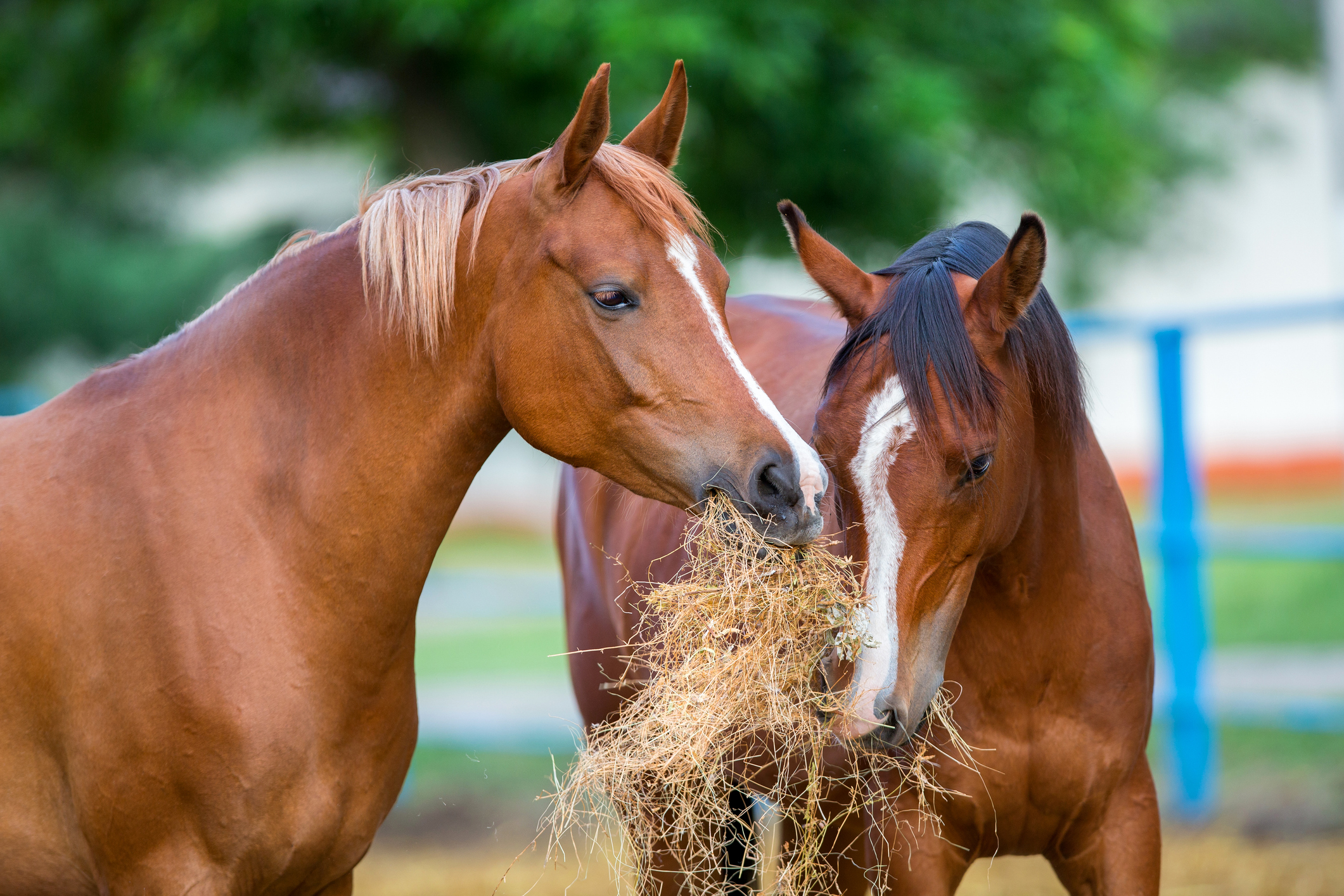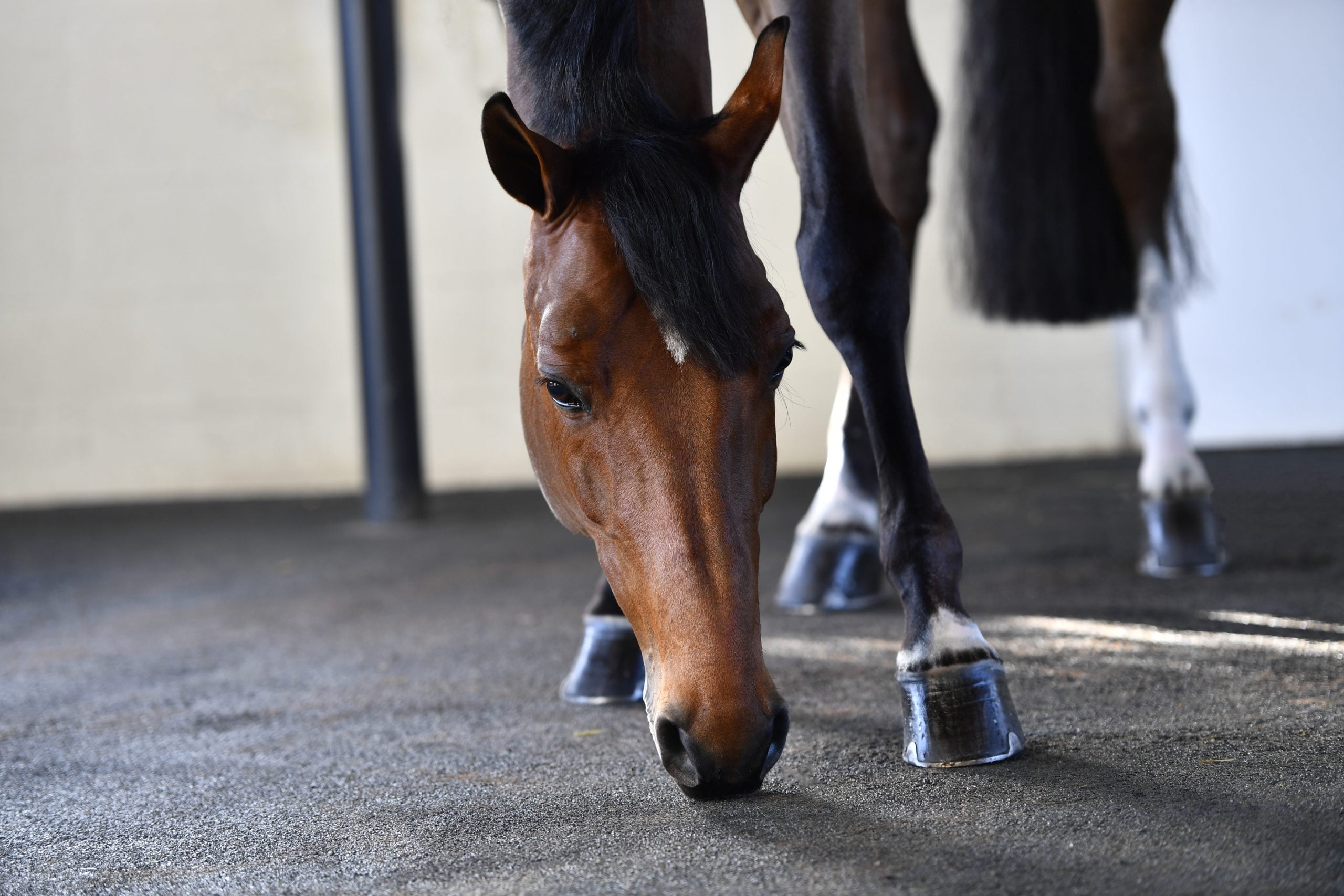If you are planning to breed your mare next year or own a breeding stallion you have probably considered nutrition from the big picture but did you know that there are specific nutrients that might help improve breeding success? Included in these are the omega fatty acids DHA and EPA, which are contained in the Equine Omega Complete product.
Mare owners with dreams of breeding in 2024 are carefully considering which stallions they will select to father their future champion. Much goes into considering who the best sire will be to ensure a successful breeding, conformation, fertility, performance of past progeny are just a few considerations. If you are the owner of a stallion you are likely looking forward to seeing his book fill while at the same time hoping that he maintains excellent fertility.
One thing that may not yet be on the minds of these horse owners is whether there are nutritional management related steps that they could be taking now that might help support breeding success.
For Mares:
A lot of things happen in your mare’s uterus in the first two days after breeding. Most notably an inflammatory process occurs. This is good inflammation with the goal of expelling bacteria, other debris and even semen to reduce the risk of infection prior to the arrival of the embryo in the uterus. This should be a short lived process, but in some mares the process can get a little out of control resulting in on-going inflammation that can put a pregnancy at risk.
Persistent post-breeding endometritis (PPBEM) as this condition is known results in fluid building up in the uterus which is toxic to the embryo that arrives in the uterus 5 to 6 days after ovulation. Pregnancy success is lower in mares that suffer from PPBEM. This condition is thought to occur in 15% of Thoroughbreds bred through live cover and embryonic loss is three times higher than in normal mares. Fertilization may also be negatively affected as sperm motility can be reduced by neutrophils released by the inflamed uterus. Failure to conceive or early embryonic death can result in large economic losses for breeders.
How do DHA and EPA in Equine Omega Complete help?
These potent long chain omega-3 fats have been shown to help regulate inflammatory processes including those relating to PPBEM. Mares supplemented with these fatty acids have been shown in research to have the following improved breeding attributes:
Increased breeding success on the first cycle
Increased blood flow to support dominant follicle development
Reduced risk of uterine infection
Better quality embryos
Increased egg viability and follicle size
For the best chance of seeing these benefits, omega-3 supplementation should start at least 60-days before breeding season. Additionally it needs to be combined with good breeding management.
The benefits of feeding mares potent omega-3 fats go beyond benefits around the time of breeding. They can help support brain and nervous system development and the production of quality colostrum for the foal. And their benefits are not limited to mares as stallion fertility may also be positively impacted by supplementing marine derived omega-3 fats.
For Stallions:
Research has shown that supplementing EPA and DHA fatty acids improves freeze thaw progressive motility in stallions where quality would otherwise be poor. Other researchers have seen similar results with improved sperm motility in fresh and cooled semen samples. It is thought that this is due to the omega-3 fatty acids reducing the decline in the membrane that surrounds sperm cells.
Supplementing long chain omega-3 fatty acids to your mares and stallions may have positive effects on breeding success ultimately saving you money. However in both cases to reap the biggest benefits, supplementation should start at least 2 months before breeding is expected to occur. It can take this long to impact the structure of cell membranes and for stallions spermatogenesis takes at least 60 days so for maximum benefit it is important to start providing DHA and EPA well before breeding is expected to occur.
Equine Omega Complete and Omega Vitamin E both provide 1 gram of DHA and 1.5 grams EPA per 4 oz serving. Additionally they provide over 1000 IU of natural vitamin E which has also been shown to have significant health benefits in breeding horses.
Brendemuehl, J.P., K. Kopp, and J. Altman. 2014. Influence of dietary algal N-3 fatty acids on breeding induced inflammation and endometrial cytokine expression in mares bred with frozen semen. Journal of Equine Veterinary Science. 34(1):123-124.
Goedde, L.D., K.M. Brennan, B.A. Ball, et al. 2015. Effects of feeding a yeast-based supplement containing selenized yeast, vitamin E, and a DHA-rich microalgae on sperm motion characteristics. Journal of Equine Veterinary Science 35(5):438.
Adams, L.A., S.T. Grady, J. Seale, et al. Supplementing fatty acids to improve sperm characteristics.
Gutjahr S, Paccamonti DL, Pycock JF, Taverne MA, Dieleman SJ, van der Weijden GC., (2000), Effect of dose and day of treatment on uterine response to oxytocin in mares. Theriogenology. 2000;54:447–456.
Maischberger E, JA Irwin, and VE Duggan (2008), Equine post-breeding endometritis: A review, Ir Vet J. 2008; 61(3): 163–168.



